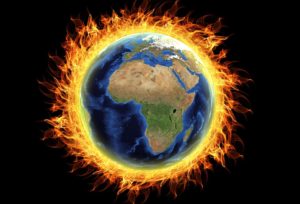 Last year’s North Atlantic hurricane season was more memorable than ever due to these three names: Maria, Harvey, and Irma. These three hurricanes devastated the Caribbean, tropical areas in the Atlantic ocean and the continental United States. Harvey was responsible for 100 trillion kilograms of rain, which was responsible for significant flooding on the coast.
Last year’s North Atlantic hurricane season was more memorable than ever due to these three names: Maria, Harvey, and Irma. These three hurricanes devastated the Caribbean, tropical areas in the Atlantic ocean and the continental United States. Harvey was responsible for 100 trillion kilograms of rain, which was responsible for significant flooding on the coast.
A new study links the devastation of Harvey to human-driven climate change. At the beginning of summer, the oceans contained more heat than ever before. The same situation occurred in the Gulf of Mexico, according to the study which was published in Earth’s Future. The excess heat contributed to Harvey being one of the wettest storms the U.S. has ever experienced. A rain gauge located at Clear Creek near Houston measured 48.2 inches of rainfall, breaking a record for the most amount of rain measured in a single spot in one storm, according to the NOAA. One estimate stated that of Harris County’s 1,800 square miles, 1,300 square miles had 1.5 feet of water due to hurricane Harvey.
Kevin Trenberth from the National Center for Atmospheric Research noted that “while hurricanes occur naturally, human-caused climate change is supercharging them.” Harvey offered researchers an opportunity to examine this phenomenon because it passed over calm water in the Gulf of Mexico, which had fewer interfering factors for accurate results. The researchers studied how the intense heat impacted Harvey’s devastation.
A hurricane helps water evaporate as it gets closer to land. If there is more heat available, the storm will absorb more and dumps this excess moisture on land once it hits. Harvey left a cool wake behind as it traveled because it used so much energy evaporating water. The residual energy from the storm colling the surface caused the heat below the surface to come up, resulting in an increase in water temperature. These combined factors supercharged the storm.
The ocean absorbs 92 percent of the excess heat in the atmosphere due to human activities. Sea levels rise as ocean waters warm, and glaciers melt, sending even more water out from areas such as Antarctica and Greenland. The warmer water contributes to supercharging hurricanes, which causes them to wreck more havoc when they reach land.
Coastal communities should prepare for more intense storms during the next hurricane season by focusing on water management, building codes, and flood preparation to prepare themselves and reduce damages.











